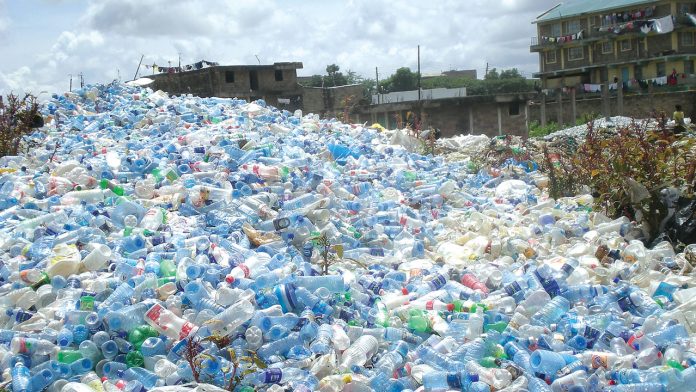Plastic is a universal material that poses a considerable environmental threat. With less than 20% of plastics recycled globally, plastic waste is becoming increasingly prevalent. The growth in plastic production and consumption, particularly in single-use packaging, along with an inefficient waste management system, continues to worsen the issue.
In Lagos – the economic capital of Nigeria – alone where about 9000 metric tons of waste is generated daily, 86% of that waste is made up of plastic bottles and bags. The real problem with plastic is that it does not break down naturally and can take approximately 500-1000 years to decompose, while in the process releasing harmful chemicals into the environment. PET bottles are particularly problematic as they are non-biodegradable and pose a significant threat to wildlife.
To address the issue of plastic waste, collaborative efforts are needed from bottlers, governments, and NGOs. They can work together to support initiatives aimed at reducing plastic waste, such as awareness campaigns, recycling infrastructure improvements, and the promotion of reusable bottles.
Governments can establish policies and regulations that promote sustainable packaging practices, and support research and innovation in alternative packaging materials and recycling technologies. NGOs can also play a critical role in raising awareness of the issue and promoting behavioral change among consumers.
To curb PET waste, several probable solutions can be implemented immediately and these include:
Promoting the use of reusable bottles through education and awareness campaigns, or by incentivizing their use through discounts or other incentives.
Improve recycling infrastructure by setting up more recycling centers, enforcing effective collection systems, and creating markets for recycled PET.
Added to that, governments can implement a bottle deposit system where consumers can receive rewards for returning bottles for recycling.
Conclusively, bottlers can explore the use of biodegradable alternatives to PET bottles and reduce the amount of packaging used.
Collaboration is the key to tackling the issue of plastic waste. Every solution must be considered, and every option explored. By working together, we can create a sustainable future for all.









